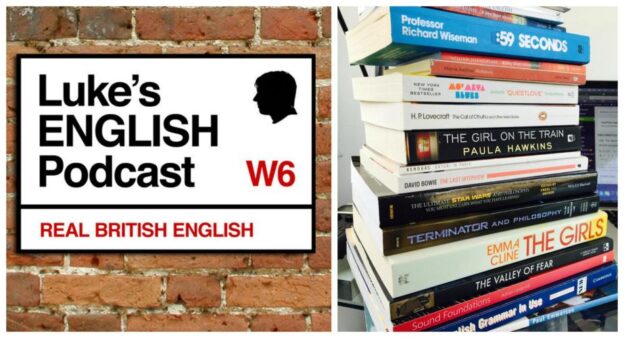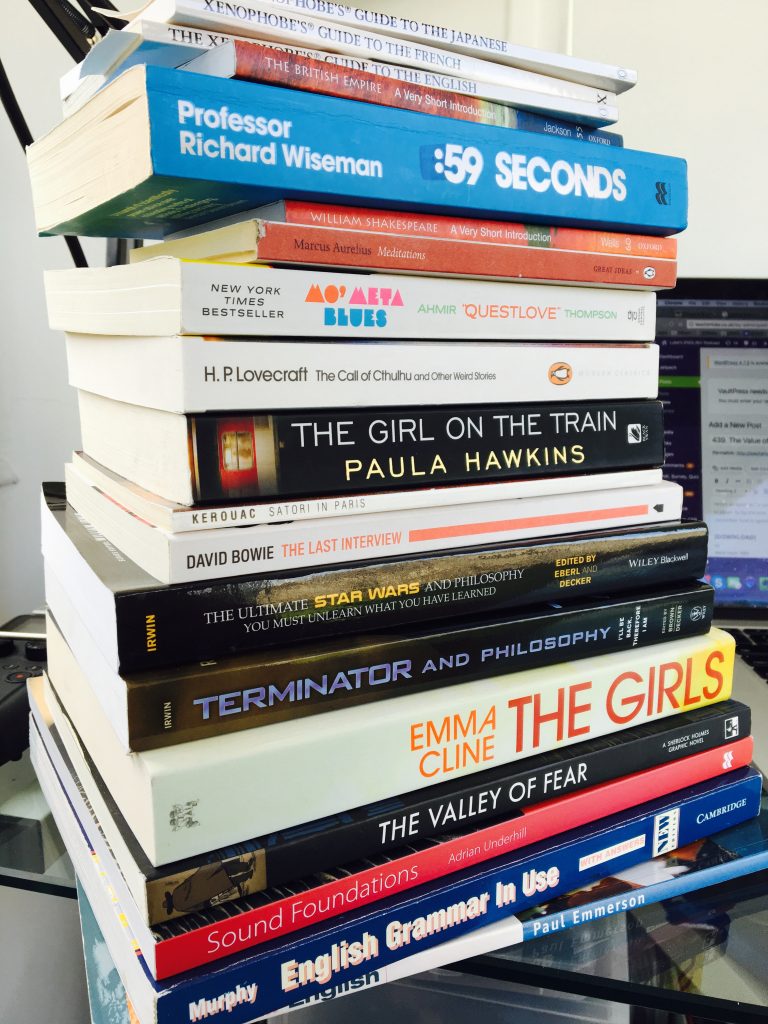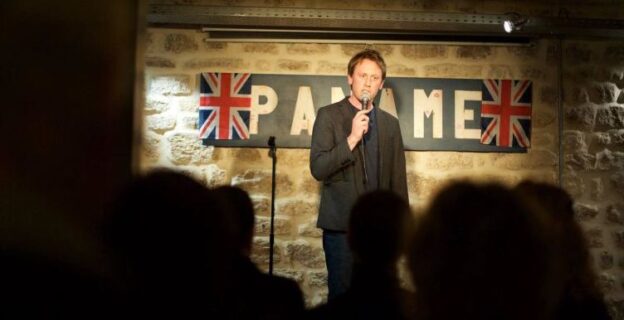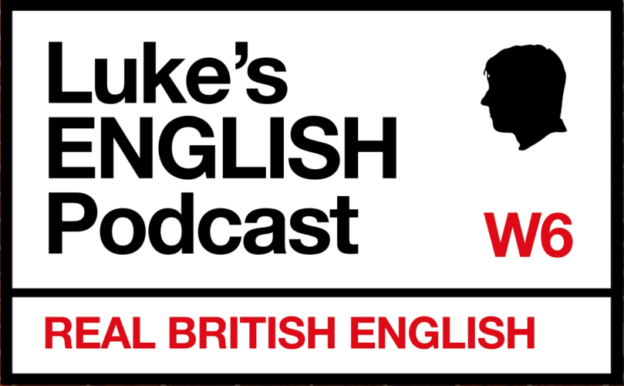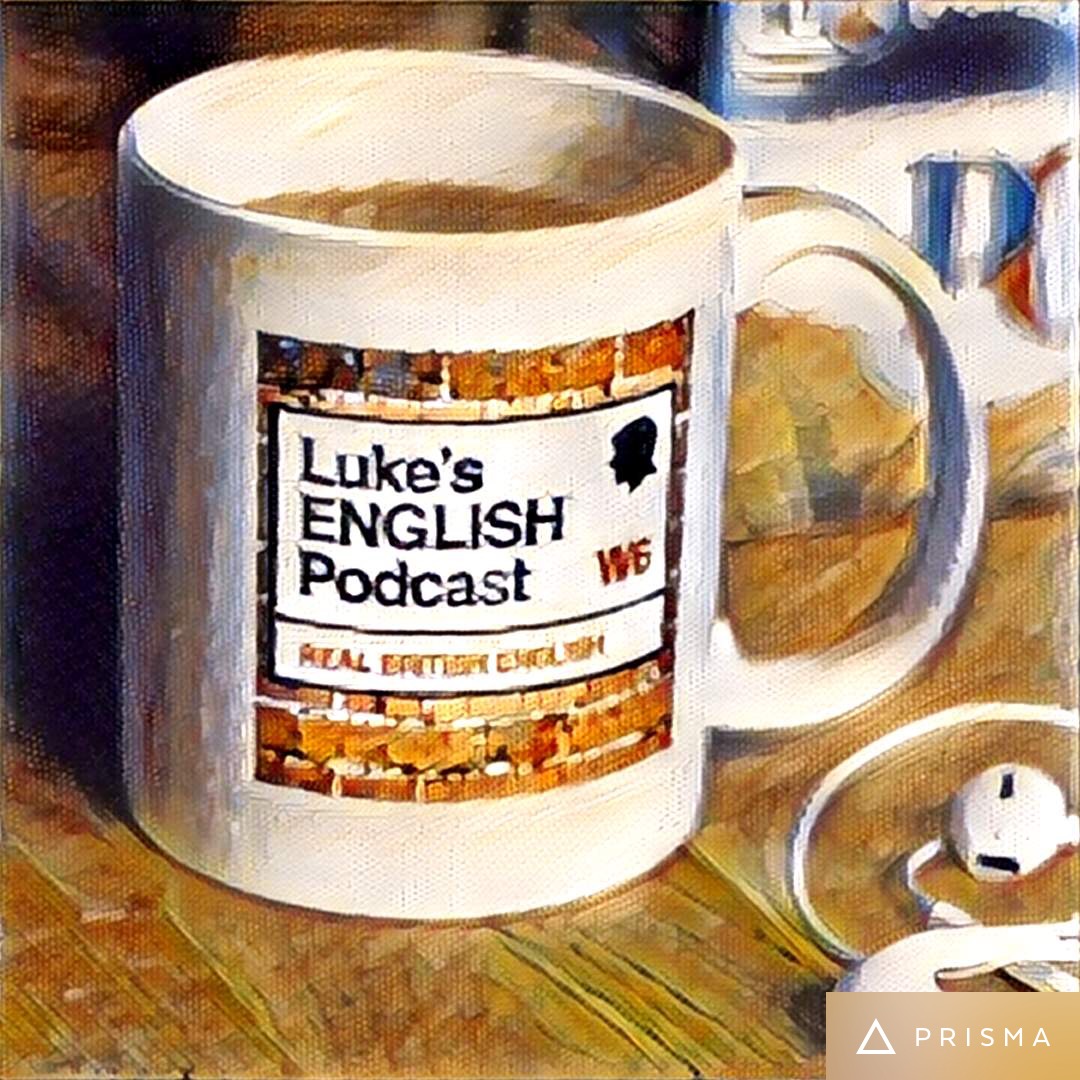In this episode I’m going to go through some questions from the comment section and give a bit of news. There will be some grammar, some vocab, some reactions to recent episodes and some bits relating to how you can continue to push your English with this podcast.
[DOWNLOAD]
Episode notes
The comment section is buzzing with chat. Photos are being shared of people’s running routes and shots of gorgeous spring flowers and blossoms in full bloom. A listener called Sylvia is doing an illustration for every single episode and posting it in the comment section. Regular commenters are having some long and funny conversations – they’re very friendly and like a laugh so get stuck into the comment section and see what all the fuss is about.
The usual commenters are: Cat, Nick, Jack, Agnes, Marta, Antonio, Eri, Hiro, Euoamo, Sylvia, Jilmani, Mayumi, Ethan, Syntropy and more people I have probably forgotten about!
Cat is the top commenter with a total of 2795 COMMENTS
Nick is in 2nd place with 1851 COMMENTS
Jack is in 3rd place with 963 COMMENTS
David Crystal
Bit of news: I’ll be interviewing Prof. David Crystal on the podcast soon.
David Crystal is the foremost writer and lecturer on the English language, with a worldwide reputation and over 100 books to his name. He is honorary professor of linguistics at the University of Wales, Bangor, and in 1995 was awarded the OBE for services to the English language.
I met him in 2012 when he gave me an award (with Andy Johnson). He’s really nice and I’ve always wanted to have him on the podcast.
And I am interviewing him soon, which is a serious treat.
This is the guy who knows everything there is to know about language and I’m going to interview him.
Honestly, I have millions of questions I could ask him, and I could easily fill up several episodes with him just asking all the questions in my head.
But I’d also like to give you a chance to ask a few questions. So leave your questions for David Crystal in the comment section. I can’t guarantee I’ll ask him all of them, but if there are some particularly good ones I’ll ask them.
Otherwise, I might be able to answer some of the questions myself.
Recent Comments on the Website
Here are some comments which arrived recently.
Cat – in reply to the British Humour episode
Hi Luke and Amber, thanks for your lovely chat! It was a most enjoyable and also educational episode.
I’ve got two questions:
1. You mentioned “NHS” (?) as something that each Brit is proud of. What is it exactly?
2. During the dissection of the Hugh Grant’s quote you said that he was “public school”. What does it mean?
Thanks for explanations!
 Oil painting by Sasha Sokolova
Oil painting by Sasha Sokolova
Thanks for the oil painting! – www.sashasokolova.com
JAPANESE LEPSTER GIFT VIDEO ~ I need to do this!
Paul
Congratulations, teacher Luke, for the podium! Great job and another great podcast, thanks!
“It’s time for me to leave Audioboom.com” = LUKEXIT!!!!!
Amber’s podcast – Paname – it’s not available yet, but soon!
Orion Transcription Team
Just a reminder about the Orion transcription team – they continue to produce transcripts, mainly under the management of Antonio from Spain, and they are always on the lookout for new recruits. Antonio regularly posts messages in the comment section saying “Episode blah blah is now available for transcription” and with a google link. E.g. the latest one is episode 444. The Rick Thompson Report.
Remember, it can be really good for your English so check it out! Transcribe just 3 or 5 minutes. It doesn’t have to be a massive commitment. If you do it regularly you’ll see that it allows you to focus your attention on what you’re hearing and you’ll be surprised at how much that focus allows you to examine the language up close. You could also try repeating out loud some of the things you’re hearing as you transcribe, that could be a good way to convert the process into a speaking exercise.
Turning Input into Intake
Here’s some vaguely academic stuff about Turning input into intake to increase your language acquisition. There’s language input, and there’s language acquisition. Between those two things, there’s intake. Intake is the stuff we really learn from.
This from the University of Austin Texas
The term “input” referred to all the exposure to a foreign language that is around us. However, as years went on, researchers realized that input was not enough. If the learners were not noticing or concentrating on the incoming flow of language, comprehension would be limited. So today, researchers in second language acquisition commonly make a distinction between input and intake. Simply put, input is all the written and spoken target language that a learner encounters, whether it is fully comprehended or not. Intake is limited to the comprehended input that impacts the learner’s developing linguistic system. For our purposes, we suggest that technology provides ways to increase the foreign language input that learners are exposed to and enhances the process of how input is converted into intake.
Without getting too fancy, let’s say that to really learn from the things you hear you need to convert what you’re hearing from input into intake.
This means listening to content which is comprehensible – i.e. basically understandable even though there may be some things you don’t get. A mix of things you already know (this is your foundation that allows you to work out the bits you don’t know) and some things you don’t know or don’t understand.
It also means sometimes really focusing and giving all your attention to certain bits of what you’re hearing. Some things might kind of pass you by a bit, but it’s important while you listen to be sort of emotionally involved in it and to interact with it while listening – to really think and feel in response to what you’re hearing. Apparently this helps turn input into intake.
Transcribing pushes this to the max. It forces you to turn everything from mere input into intake – which is the good stuff. I think it’s backed up by not just academic research but by the experiences of transcribers. It helps push your English, and remember you can just do a short chunk, you don’t have to do a whole episode, that’s crazy!
In summary – focusing all your attention on 3-5 minutes of an episode can really help turn input into intake and can maximise your learning potential with this podcast, or any audio resource.
Yuko – language question “shall”
Dear Luke, my name is Yuko. I have been a ninja listener of your pod cast for a long time, and I am originally from Japan, which makes my ninja status more authentic, doesn’t it? I am living in New York, but really fond of British English.
I have a question. When it comes to the usage of ‘shall’, it is rarely used here except for those two occasions: to suggest something, for example, “shall I do this for you?”, and to use following “Let’s”‘ for example, “let’s go, shall we”. Back in Japan, I learned that shall is also used interchangeably with will for describing the things or action in the future, but, here, all American friends said that shall is never used in daily life except for the examples above, and that if I used shall instead will, it would sound quite archaic.
However, I have a sense that sometimes I catch “shall” as description of future in bbc or British dramas even in modern setting. Would you mind telling the use of “shall” in today’s British English? Thank you very much. I always enjoy and admire your witty, and sophisticated subjects, not to mention it was quite honoring that you chose my country as the destination of your latest trip. I hope all is well and both of you and your wife have enjoyed it.
Yuko, all the right info is in your question.
You’re just not sure about it and you need confirmation.
OK then!
Shall – for suggestions (shall I? Shall we?) – after Let’s…
Shall for future (like ‘will’ – yes, old-fashioned and a bit posh, but some people still do it, like my Mum “I shan’t be coming to the cinema.” or “I expect I shall be exhausted by the end of the day!”
Also in contracts for obligations
That’s it!
Agnes – Sport
I’m just curious whether Luke is taking some exercise or not, he looks sporty and I suppose that he does some sport activities:-)) I usually jog before going work, early morning – the best time for burning calories.
Anna Mrozek
I had an English class today and my classmate asked me “how the hell do you know all these words?!”, so…
Thank you Luke, because you deserve the credit for that. :)
Leonid
Hi there everyone! Does someone know the accurate meaning of the phrase “to be on E”? Thanks in advance!
Great comment from Cat
Just keep listening to Luke’s English Podcast. And try to listen to episodes more than once. It is on the second listen that we start to notice the language consciously and start learning. After some time, you can listen to the episode for the third time. And there you will see how much you have learned in the meanwhile. Do it with your favourite episodes. And try to listen to OPPs as well. And use the same technique. It’s very effective. Also listening during a physical exercise speeds up the learning process. Because your brain is working at 5x of it’s performance capability. So use such shortcuts, especially if you are a bit lazy like I am! ;))
I would add that you can also do some transcribing, or check out previously written transcriptions – either the unproofread ones in google docs, or episodes with published scripts. That can help you notice language too.
Film Club: Touching the Void
Hope you enjoyed the “Touching the Void” episodes. I have had a few comments indicating that it moved a few people. but my stats show the episode hasn’t been listened to as much as normal episodes.
I often worry about uploading too much, but there’s always someone who says “we want more!”
I recorded an episode about Alien Covenant the other day. It’s about an hour of rambling about the Alien franchise. I’m a bit wary of uploading it straight away because it would be 3 film club episodes in a row and this isn’t strictly a film podcast. I probably shouldn’t think about it all that much.
But I’ve been quite productive lately and I have some episodes in the pipeline – Alien, 2 Amber & Paul episodes, one about music and culture with James.
Anyway, going back to Touching the Void, I’m glad to see those of you who have listened to it seemed to enjoy it.
Agnes
Have been listening to this story based on facts for the second time today I felt an incredible chill down my back and my hair stood up on both of my hands.
Luke, telling us this story, you made me be there, with them, I saw this horribly broken leg, I saw as Joe dropped down, I saw everything, even though I haven’t watched the documentary yet.
just thank you
Ethanwlee
One step at a time – this is my biggest takeaway from this episode. At the end of the day, that’s the mantra that keeps us going, staying focused. This story leaves me lots of food for thought. Thanks Luke!
Jilmani
Thank you so much Luke! It’s an amazing episode I can’t express how amazing it is. I want to tell you my personal story about climbing. My parents are both climbers and they had a club for climbers. They worked there a lot to train and coach also they took a lot of people in trips for camping. And I always went with them when I was a child. I liked climbing and adventurous trips more than anything else. I had always climbed and camped before I had an accident in 2014 in Lebanon. I was terribly injured and they expected that I’d die. Luckily I managed to survive. I needed a lot of eye surgeries because my cornea was damaged. Now I can’t climb at all not because I’m afraid of it, but my doctor prevented me. I got rid of all my pictures and anything that might remind me of climbing or my adventures. I haven’t climbed since that day, but I skydived a lot. Climbing always helped me to relax and forget about the troubles that we have in the Middle East. Also I’m a religious person it always made me feel happy and close to God. My doctor told me that I will be able to climb again when he removes the stitches. Thanks again Luke. I’ll watch the episode tonight luckily I have a Netflix subscription and I love documentaries a lot. Waiting for the next episode!
Luke: Be careful if you climb again! Be like me, just stay at home and watch other people do it on YouTube, it’s safer (except maybe I should do more exercise)
daav
Wow! Thank you, Luke! I really appreciate the topic you’ve chosen for a new episode. The film is pretty good and the book as well. I’ve got one in my bookcase. I have just little experience with high mountains because after my wedding I decided to bury my climbing gear to the very bottom of my wardrobe and since that day I’ve been “only” a hiker. But anyone, who has ever spent some time in the mountains without any support, just with a climbing mate on the other end of the rope, an ice axe in hands and a pair of crampons knows, that the fact Joe Simpson survived the Siula Grande ordeal is a …. real miracle, nothing else than a real miracle…
If someone wants to buy a book I recommend Bookdepository instead of Amazon. They offer free worldwide delivery which is a real bargain in my opinion. I buy books from them regularly (from The Czech Rep.) and it works well.
Cat
Daav, but why did you put away your climbing gear?! It’s like giving up on a part of your true self. Can you be happy with that for long?
daav
Hi Cat. At first I must admit I was never a climbing machine. I used to climb few times a year. Let’s say just few weekends and one or two trips to the Tatra Mountains or to the Alps. So it wasn’t so difficult to give up. In the Czech Rep. climbing is very popular and there are many people who spend every possible moment climbing a piece of rock in their surrounding area. So I can’t say I was a climber. I usually say that I have done some climbing :c) One day I considered that my wife meant a lot more to me than climbing. She had never asked me to stop climbing. She had even climbed with me once. But any time I had packed my climbing gear I had seen the same wish in her eyes – please, stay alive. During my last climbing trip I had a minor accident I have never told my wife about. Fortunately nothing comparable to Joe and Simon :c) But I realized that I was being very selfish. I enjoyed it, I liked it, but my parents and other people who truly love me were frightened to death every time I left them with a rope in my bag. Now I know that it wasn’t the climbing that I liked. It was mainly a peaceful and calm space around me. It was the fact I can leave all my daily routine behind me. Now i know it’s not adrenalin that I need. It’s just some kind of feeling I am alone, just on my own in some remote area. So today, long distance hiking is an activity that gives me everything I need. I just pack my rucksack, a tent, a fuel stove, some food, maps and a compass and I just walk. It’s different to climbing. It’s definitely not so dangerous. However it provides me the same pleasure. Unfortunately the Alps are full of people and there are so many huts. But some parts of the Pyrenees are amazing, the western part of Ukraine as well and the Andes are a dream for any hiker. I have many dreams, CDT in USA is one of them as well as many others around the world. The only disadvantage of long distance walking is that it’s very time-consuming compared to climbing. Are you a climber Cat?
Cat
Daav, if I were Luke, I would read your comment out in the next episode. It is deeply felt and full of love. :)
daav
Thank you Cat. But I’ve noticed that some people don’t like long episodes. And my comment is so long that Luke would have to record an extra episode just to read it out :c)
Success story from Erick in Brazil
Hello Luke,
This is Erick from Brazil.
Today when I was listening to your #429 podcast while running, I felt encouraged to share my listening experience with you.
I have been listening to you for about 1,5 years usually when I go running, so you have been my partner twice or three times a week. Strange, but I feel as if I have known you for a long time…
I actually think your podcast is more than just a teaching one, but it is more like a variety show with news, entertainment, fun stuff, etc. I really enjoy your ‘long talks’ which can be just some information, funny talk or more deep issues which are very good for getting immersed into the English language.
It is gratifying to hear other points of view of the various subjects on the media agenda especially when you bring guests to your show, like your Father, Amber and Paul, etc.
Sometimes it can be very hard for me to understand, but I took your advice, I keep going, listening to some episodes more than once, trying to get as much as I can.
Now I can say that I broke through the language barrier and I can really understand and talk in English because of you! So, I just have to thank you for all the material that you provide for free and especially for your success in making your podcast so popular and genuine!
Cheers from Brazil,
Erick Takada
I didn’t share that just to remind you of how wonderful I am, but also to just remind you that if you find it difficult to follow everything you hear on this podcast that you should keep going and battle through the moments of difficulty and you’ll find that bit by bit you build your understanding.
I can’t understand how anyone could expect to learn English properly without listening to a lot of it. I think it’s vital.
Do me a favour!
If you know someone who might like this podcast, share it with them! Recommend it to that person. It’s a good way to spread the word.
Another thing you could do is to write a nice review on iTunes – that’s really good for the podcast because it helps things like algorithms and getting my podcast featured in the ‘recommended’ section on iTunes. Also it looks good when new people check it on iTunes, and it would just make me feel good and put a smile on my face, which ultimately will feed back into the podcast.
Subscribe to the mailing list.
Watch this space for news of a potential LEP app for your phone or tablet which could include some bonus app-only content!

